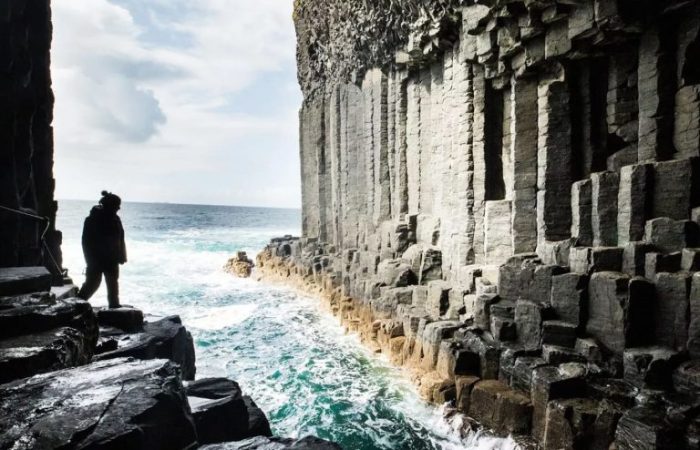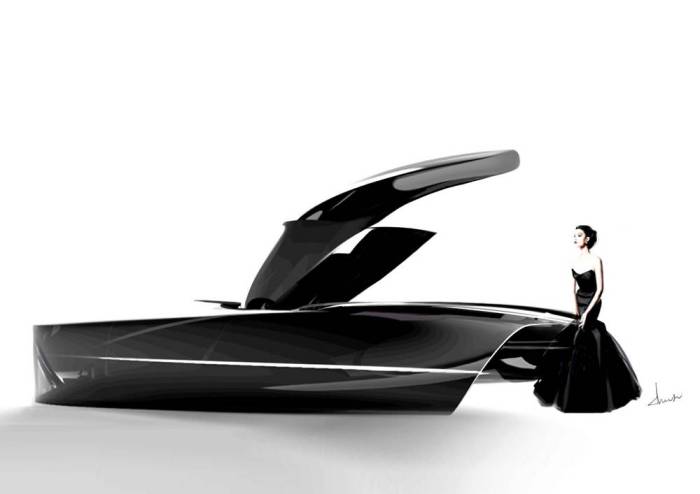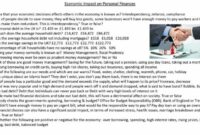The future of luxury lifestyle and technological advancements sets the stage for a fascinating exploration of how innovation is reshaping the high-end experience. From AI-powered personalization to immersive metaverse events, technology is not just enhancing luxury; it’s fundamentally redefining it. We’ll delve into how emerging technologies are transforming luxury travel, goods, and even our understanding of sustainability, painting a picture of a future where opulence and innovation intertwine seamlessly.
This exploration will cover the impact of artificial intelligence on personalized services, the role of virtual and augmented reality in showcasing luxury products, and the use of blockchain to ensure authenticity. We’ll examine the rise of digitally native luxury brands, the ethical considerations of advanced manufacturing techniques, and the potential of the metaverse to create entirely new luxury experiences.
Ultimately, we aim to understand how technology is not only shaping the future of luxury but also driving a more sustainable and responsible approach to this exclusive world.
Emerging Technologies Shaping Luxury Experiences

Source: laliste.luxe
The luxury landscape is undergoing a dramatic transformation, driven by rapid advancements in technology. These innovations aren’t just enhancing existing experiences; they’re fundamentally reshaping the very definition of luxury, focusing on personalization, authenticity, and sustainability. This section will explore some key technological advancements driving this evolution.
Artificial Intelligence and Personalized Luxury Services
Artificial intelligence (AI) is revolutionizing the way luxury brands interact with their clientele. AI-powered chatbots provide 24/7 customer service, offering personalized recommendations, answering queries, and managing orders with unparalleled efficiency. Sophisticated algorithms analyze customer data – purchasing history, browsing behavior, preferences – to create highly tailored experiences. For example, a luxury hotel might use AI to predict a guest’s preferences regarding room temperature, lighting, and even preferred amenities before their arrival, creating a seamless and anticipatory service.
Beyond customer service, AI is also being used to design bespoke products, predict trends, and optimize supply chains for greater efficiency and reduced waste.
Virtual and Augmented Reality in Luxury Product Previews and Experiences
Virtual Reality (VR) and Augmented Reality (AR) technologies are offering unprecedented ways for consumers to engage with luxury products before purchase. VR allows customers to virtually “try on” clothes, experience the interior of a luxury car, or explore a high-end property from the comfort of their own homes. AR, on the other hand, overlays digital information onto the real world.
The future of luxury lifestyles will likely be shaped by technological advancements, offering personalized experiences and efficient resource management. However, achieving a luxurious feel doesn’t always require a hefty bank account; check out this guide on Maintaining a luxury lifestyle on a modest income for clever strategies. Ultimately, future luxury will blend technological innovation with mindful consumption, creating a more accessible and sustainable high-end experience.
Imagine using an AR app to visualize how a specific piece of furniture would look in your living room, or to see a detailed 3D model of a luxury watch on your wrist. These technologies remove geographical barriers and significantly enhance the pre-purchase experience, increasing customer confidence and driving sales.
Blockchain Technology and the Authenticity of Luxury Goods
The luxury goods industry is plagued by counterfeiting. Blockchain technology, with its immutable record-keeping capabilities, offers a powerful solution. By recording the entire journey of a luxury item – from raw materials sourcing to manufacturing and distribution – on a blockchain, brands can guarantee its authenticity and provenance. This provides consumers with complete transparency and peace of mind, while also protecting brands from revenue loss due to counterfeiting.
Consumers can scan a unique QR code linked to the blockchain to verify the authenticity of their purchase, adding a new layer of trust and value to luxury goods.
Sustainable Technologies in Luxury Manufacturing and Consumption
The growing awareness of environmental issues is pushing luxury brands to adopt more sustainable practices. This involves integrating technologies that minimize waste, reduce energy consumption, and utilize eco-friendly materials. 3D printing, for example, allows for on-demand manufacturing, reducing overproduction and waste. The use of recycled materials and innovative bio-based alternatives is also gaining traction. Furthermore, advancements in renewable energy sources are powering luxury manufacturing facilities, lowering carbon footprints.
These sustainable initiatives not only reduce environmental impact but also enhance brand reputation and appeal to increasingly environmentally conscious consumers.
Robotics in High-End Manufacturing vs. Traditional Craftsmanship
| Feature | High-End Manufacturing with Robotics | Traditional Craftsmanship |
|---|---|---|
| Production Speed | Significantly faster, higher volume | Slower, lower volume, often bespoke |
| Precision & Consistency | High precision and consistent quality | High precision possible, but consistency can vary |
| Cost | High initial investment, lower per-unit cost at scale | Lower initial investment, higher per-unit cost |
| Human Element | Reduced human intervention, potential for job displacement | Strong human element, emphasis on skill and artistry |
Luxury Travel and Hospitality in the Future
The future of luxury travel and hospitality is being reshaped by technological advancements, offering unprecedented levels of personalization and seamless experiences. We’re moving beyond simply offering opulent accommodations; the focus is shifting towards crafting bespoke journeys that cater to individual preferences and desires, creating memories rather than just transactions. This involves leveraging data, AI, and innovative technologies to anticipate guest needs and deliver truly unforgettable moments.
This transformation is driven by a growing demand for personalized experiences and a desire for seamless, intuitive interactions with services. Luxury travelers are increasingly tech-savvy and expect sophisticated, integrated technology to enhance their journey, from pre-trip planning to post-trip memories. This demand is shaping the future of luxury hotels, cruise lines, and even the concept of “home away from home” for the discerning traveler.
Personalized Itineraries and Bespoke Experiences
The future of luxury travel hinges on hyper-personalization. Imagine a travel agent, powered by AI, analyzing your past travel history, social media activity, and even your personal preferences (gathered ethically, of course) to craft a unique itinerary. This itinerary would seamlessly integrate flight bookings, accommodation reservations, curated dining experiences, and even access to exclusive events, all tailored to your specific interests and tastes.
This goes beyond simple recommendations; it’s about anticipating your needs and desires before you even articulate them. For example, a frequent traveler with a known passion for art might find their itinerary automatically incorporating visits to local galleries and private art collection viewings, based on their location and available time.
A Hypothetical Luxury Hotel Experience Incorporating Cutting-Edge Technology
Imagine checking into the “Symbiosis Hotel,” a futuristic haven where your arrival is anticipated. Your personalized room key is delivered via a contactless, biometric system. Upon entering, your preferred lighting, temperature, and music automatically adjust, based on your profile. A holographic concierge offers 24/7 assistance, providing personalized recommendations for restaurants, activities, and local attractions. Your room features smart mirrors that offer interactive skincare consultations and personalized fitness routines.
The hotel utilizes advanced sensors to anticipate your needs, such as replenishing amenities before you run out or providing proactive assistance if you seem unwell. Even the food and beverage service is personalized, with AI-driven menus suggesting dishes based on your dietary preferences and past orders.
Smart Homes Enhancing the Luxury Residential Experience for Travelers
Smart home technology is transforming the luxury residential experience for travelers. Imagine a villa equipped with voice-activated controls for lighting, temperature, and entertainment systems. Automated security systems ensure peace of mind, while smart appliances simplify daily tasks. Remote access allows you to pre-cool your villa before arrival, and personalized climate control adjusts to your preferences throughout your stay.
Integrated entertainment systems provide seamless streaming services and curated content, while smart lighting creates a relaxing ambiance. These features create a seamless and personalized experience, allowing travelers to focus on relaxation and enjoyment rather than managing their environment. For example, a family might pre-program their villa to play children’s music at certain times or automatically dim the lights at bedtime.
A Future Luxury Cruise Ship Incorporating Sustainable and Technological Advancements
The “Oceania Nova” is a concept luxury cruise ship powered by a combination of renewable energy sources and advanced fuel cells. It features autonomous navigation systems, reducing reliance on human crews and increasing efficiency. Smart cabins offer personalized climate control, entertainment, and interactive concierge services. Advanced water purification systems ensure sustainable practices, and waste management systems minimize environmental impact.
The future of luxury lifestyles hinges on seamless technological integration, offering personalized experiences previously unimaginable. This is especially true for travel, and the rise of curated solo journeys is a perfect example; check out these amazing options for Luxury lifestyle travel experiences for solo travelers to see what I mean. Ultimately, advanced tech will continue to redefine what constitutes a truly luxurious and effortless experience, even for the independent adventurer.
The ship incorporates advanced AI-powered safety features, predicting potential hazards and optimizing safety protocols. Virtual reality experiences offer immersive explorations of destinations, while augmented reality overlays enhance onboard activities and sightseeing tours. Onboard hydroponic gardens provide fresh produce, minimizing the ship’s environmental footprint.
Challenges and Opportunities for Luxury Hotels in Adapting to Technological Advancements
The integration of technology in luxury hotels presents both opportunities and challenges.
Here are some key aspects to consider:
- Opportunity: Enhanced guest experience through personalization and seamless service. Hotels can leverage data to anticipate guest needs and provide proactive assistance.
- Challenge: High initial investment costs for implementing new technologies. Upgrading infrastructure and training staff can be expensive.
- Opportunity: Increased operational efficiency through automation. Smart systems can optimize energy consumption, streamline housekeeping, and improve resource management.
- Challenge: Maintaining data privacy and security. Protecting guest data is crucial, and hotels must implement robust security measures.
- Opportunity: Development of new revenue streams through personalized services and experiences. Hotels can offer bespoke packages and create unique experiences using technology.
- Challenge: The need for staff retraining and upskilling. Employees need to be comfortable using and supporting new technologies.
The Future of Luxury Goods and Personalization
The luxury goods market is undergoing a dramatic transformation, driven by technological advancements and evolving consumer preferences. Traditional luxury brands, built on heritage and craftsmanship, are now facing competition from digitally native brands that leverage technology to create personalized and engaging experiences. This shift necessitates a re-evaluation of how luxury is defined, produced, and consumed. The future of luxury lies in the seamless integration of technology and personalization, creating bespoke experiences that cater to individual desires and values.
Traditional Luxury Brands Versus Digitally Native Luxury Brands
Traditional luxury brands, often established houses with a long history, rely heavily on their brand heritage, craftsmanship, and exclusive distribution networks. Their marketing often emphasizes exclusivity and scarcity. In contrast, digitally native luxury brands are born online, utilizing social media, e-commerce, and data analytics to connect directly with consumers. They prioritize personalization, transparency, and often a more sustainable or ethical production model.
The future of luxury is intertwined with technological advancements, offering personalized experiences unlike ever before. However, it’s crucial to discern true luxury from mere extravagance; check out this helpful guide on How to find authentic luxury experiences instead of superficial ones to navigate this evolving landscape. Ultimately, future luxury will be defined not just by technological prowess, but by genuine, meaningful experiences.
While traditional brands may struggle to adapt to the rapid pace of digital change, digitally native brands may lack the established brand recognition and heritage of their older counterparts. Both, however, are increasingly recognizing the importance of personalized experiences and direct-to-consumer engagement.
Emerging Trends in Luxury Fashion and Accessories Driven by Technological Innovation
Technological innovation is driving several key trends in luxury fashion and accessories. This includes the rise of personalized customization options, where customers can design their own garments or accessories using digital tools. We also see the increasing use of smart fabrics and wearable technology integrated into clothing and accessories, adding functionality and enhancing the user experience. Finally, virtual try-on technologies and augmented reality experiences are transforming the way consumers shop for luxury goods, offering immersive and personalized shopping experiences from the comfort of their homes.
Brands like Burberry have already begun integrating AR into their shopping experiences.
3D Printing’s Impact on Bespoke Luxury Items
D printing is revolutionizing the creation of bespoke luxury items. This technology allows for the production of highly intricate and personalized designs that would be impossible or prohibitively expensive to create using traditional methods. For example, 3D printing enables the creation of unique jewelry pieces with complex geometries and personalized engravings, or customized shoe lasts for perfectly fitting footwear.
The ability to rapidly prototype and iterate designs also allows for greater flexibility and speed in the production process. Furthermore, 3D printing opens up possibilities for using sustainable and innovative materials that would be difficult to work with using traditional manufacturing techniques.
Ethical Implications of Using Advanced Technologies in Luxury Goods Creation
The use of advanced technologies in the creation of luxury goods raises several ethical considerations. Concerns include the potential for job displacement due to automation, the environmental impact of new materials and manufacturing processes, and the potential for misuse of data collected through personalized experiences. Ensuring transparency and ethical sourcing of materials, investing in reskilling initiatives for displaced workers, and implementing responsible data management practices are crucial to mitigating these risks.
Luxury brands must prioritize sustainability and ethical practices to maintain their credibility and appeal to increasingly conscious consumers.
A Futuristic Luxury Product: The “Aether” Smart Jacket
Imagine the “Aether” smart jacket, crafted from a bio-engineered, self-healing silk interwoven with microscopic solar cells. The jacket’s surface shimmers with a subtle, iridescent sheen, changing color based on the wearer’s body temperature and ambient light. Its integrated micro-processors constantly monitor the wearer’s vital signs, adjusting temperature regulation and providing haptic feedback for optimal comfort and well-being. Hidden pockets contain miniature drones that deploy for hands-free photography or to provide augmented reality overlays on the wearer’s surroundings.
The Aether is not just clothing; it’s a personalized, responsive ecosystem that enhances the wearer’s experience, reflecting their individual style and needs. Its sleek, minimalist design emphasizes functionality and comfort, showcasing a future where technology seamlessly integrates with luxury and personal expression.
Luxury and Sustainability: The Future Of Luxury Lifestyle And Technological Advancements

Source: wordlesstech.com
The luxury industry, traditionally associated with opulence and extravagance, is increasingly recognizing the urgent need for sustainable practices. Technological advancements are proving crucial in bridging the gap between luxury and environmental responsibility, allowing brands to maintain their high standards while minimizing their ecological footprint. This involves innovative approaches to packaging, resource management, supply chain transparency, and the adoption of circular economy models.
Technological innovations are fundamentally reshaping the sustainability landscape within luxury. Data-driven insights enable efficient resource allocation, while advancements in materials science and manufacturing processes minimize waste and pollution. Furthermore, blockchain technology enhances transparency and traceability throughout the supply chain, promoting ethical sourcing and responsible production. The integration of these technologies is not simply a trend; it’s a necessity for the long-term viability and ethical operation of the luxury sector.
Innovative Packaging Solutions
Sustainable packaging is a key area where technology is making a significant impact. Luxury brands are moving away from traditional, resource-intensive materials towards biodegradable, compostable, or recyclable alternatives. For instance, some brands are using mushroom packaging, which is completely biodegradable and requires minimal energy to produce. Others are employing innovative printing techniques that reduce water and ink consumption, while still maintaining the high aesthetic standards expected of luxury goods.
Furthermore, the use of recycled materials, coupled with intelligent design that minimizes packaging size and maximizes product protection, is becoming increasingly common. The focus is on creating packaging that is both luxurious and environmentally responsible.
Data Analytics in Resource Management
Data analytics plays a pivotal role in optimizing resource management across the luxury value chain. By collecting and analyzing data on energy consumption, water usage, and waste generation, companies can identify areas for improvement and implement targeted efficiency measures. For example, predictive analytics can optimize production schedules to minimize energy waste and reduce material spoilage. Real-time monitoring systems can track resource consumption in manufacturing facilities, allowing for immediate adjustments to prevent excesses.
This data-driven approach enables luxury brands to significantly reduce their environmental impact without compromising quality or production efficiency. The analysis of consumer data also helps brands understand preferences for sustainable products, enabling them to tailor their offerings and marketing strategies accordingly.
The future of luxury lifestyles will be heavily shaped by technological advancements, from personalized experiences to AI-driven concierge services. Understanding the driving forces behind these desires is crucial, which is why exploring The psychology of luxury lifestyle consumption provides valuable insight. This deeper understanding allows for the creation of more effective and desirable luxury products and services, ultimately shaping the future of the industry itself.
Circular Economy Models in Luxury
Technology is facilitating the transition to circular economy models within the luxury industry. This involves designing products for durability, repairability, and recyclability, extending their lifespan and minimizing waste. 3D printing, for example, allows for on-demand manufacturing, reducing the need for large-scale production and minimizing material waste. Blockchain technology enhances product traceability, enabling the easy identification and recovery of valuable materials at the end of a product’s life cycle.
Companies are also investing in innovative recycling and upcycling technologies to recover and reuse precious materials, creating a closed-loop system that reduces reliance on virgin resources. The implementation of these circular economy models not only reduces environmental impact but also enhances brand reputation and creates new revenue streams.
Technological Solutions for Responsible Sourcing and Ethical Production
The following technological solutions contribute to responsible sourcing and ethical production in luxury manufacturing:
Technological advancements are crucial for ensuring transparency and accountability throughout the supply chain. Implementing these solutions empowers luxury brands to build trust with consumers and contribute to a more sustainable and ethical future.
- Blockchain technology: Provides complete traceability of materials and products, ensuring transparency and preventing fraud or unethical practices.
- AI-powered monitoring systems: Enable real-time monitoring of working conditions and environmental impact in manufacturing facilities, promoting fair labor practices and environmental responsibility.
- Satellite imagery and remote sensing: Allow for the monitoring of deforestation and other environmental impacts associated with raw material sourcing.
- RFID tagging: Provides real-time tracking of materials and products throughout the supply chain, improving efficiency and reducing waste.
- Digital twin technology: Allows for the virtual simulation of manufacturing processes, optimizing resource use and reducing environmental impact.
The Metaverse and the Future of Luxury
The metaverse presents a groundbreaking frontier for luxury brands, offering unprecedented opportunities to connect with customers in immersive and personalized ways. It transcends geographical limitations and allows for the creation of exclusive experiences unavailable in the physical world, potentially reshaping the very definition of luxury consumption. This new digital realm offers a unique blend of escapism, community, and personalized engagement that traditional marketing struggles to match.The potential of virtual luxury goods and experiences within the metaverse is immense.
Brands can create digital versions of their iconic products, offering unique features and functionalities not possible in the physical realm. Furthermore, the metaverse allows for the development of entirely new, virtual-only luxury experiences, from exclusive virtual fashion shows to interactive product unveilings and personalized virtual consultations. This expansion into the digital sphere opens avenues for reaching new demographics and broadening brand appeal.
Virtual Luxury Goods and Experiences, The future of luxury lifestyle and technological advancements
Luxury brands are already experimenting with virtual goods, offering digital versions of their products as NFTs (Non-Fungible Tokens). These digital assets provide unique ownership and verifiable authenticity, creating a new layer of exclusivity and value. For instance, Gucci has sold virtual sneakers and handbags, while Burberry has created virtual accessories for its gaming avatars. These digital items often come with additional benefits, such as access to exclusive real-world events or virtual experiences, further enhancing their desirability.
The creation of virtual flagship stores and interactive showrooms within the metaverse also presents an exciting avenue for showcasing products and building brand immersion. Imagine a virtual Gucci Garden, meticulously recreated in the metaverse, where users can explore different collections, interact with virtual stylists, and even attend virtual fashion shows. This level of engagement fosters deeper brand loyalty and creates a sense of community among luxury consumers.
NFTs and Brand Loyalty
Luxury brands are increasingly leveraging NFTs to enhance brand loyalty and exclusivity. NFTs provide a unique way to verify authenticity and ownership of both physical and digital assets, creating a sense of scarcity and value that resonates with luxury consumers. By offering limited-edition NFTs that unlock access to exclusive events, experiences, or even physical products, brands can cultivate a deeper relationship with their most loyal customers.
The integration of NFTs with loyalty programs can also create a gamified experience, rewarding customers for their engagement and fostering a sense of community. For example, a luxury car brand might offer an NFT that grants access to a private virtual club, where owners can interact with other owners, receive exclusive updates on new models, and participate in virtual events.
Challenges and Opportunities of Immersive Experiences
Creating truly immersive luxury experiences in the metaverse presents both challenges and opportunities. One of the primary challenges is the need for high-quality graphics and seamless user experiences. Luxury brands must invest in advanced technology to create visually stunning and intuitive virtual environments that accurately reflect the quality and craftsmanship of their physical products. Furthermore, ensuring accessibility for users with varying technological capabilities is crucial.
Opportunities arise from the ability to personalize experiences to an unprecedented degree. The metaverse allows for the creation of bespoke virtual environments tailored to individual customer preferences, offering a level of personalization that is difficult to achieve in the physical world. This personalization extends to virtual events, allowing brands to create bespoke experiences that cater to the unique interests of their target audience.
A Hypothetical Luxury Metaverse Event
Imagine a virtual gala hosted by a prestigious luxury watchmaker within a meticulously recreated replica of its flagship boutique in the metaverse. Attendees, who would gain access via a unique NFT, would be able to explore the virtual boutique, interact with virtual representatives, and view the latest watch collection in exquisite detail. The event would feature interactive elements, such as virtual try-on experiences and the ability to customize virtual watch faces.
Marketing for the event would leverage social media campaigns targeting existing customers and potential high-net-worth individuals. Accessibility would be ensured through compatibility with various VR headsets and devices, and user-friendly interfaces would cater to a wide range of technical expertise. The event would culminate in a virtual auction of exclusive, limited-edition NFTs linked to physical watches, further enhancing the exclusivity and desirability of the brand.
End of Discussion
In conclusion, the future of luxury is inextricably linked to technological advancements. While challenges remain – ethical considerations, sustainable practices, and the potential for digital disruption – the opportunities are immense. The integration of technology promises to create more personalized, immersive, and sustainable luxury experiences, redefining opulence for a new generation. This journey into the future of luxury reveals a landscape where innovation and extravagance converge, shaping a future where the pursuit of the exceptional is enhanced by the power of technology.
General Inquiries
What is the biggest challenge facing luxury brands in adopting new technologies?
Balancing the desire for technological innovation with the preservation of traditional craftsmanship and brand heritage is a major challenge. Maintaining exclusivity and avoiding a diluted brand image in the digital age is also crucial.
How will AI impact the customer experience in luxury retail?
AI will personalize shopping experiences through tailored recommendations, virtual styling consultations, and proactive customer service, creating a highly customized and efficient luxury shopping journey.
What role will sustainability play in the future of luxury?
Sustainability will be increasingly important. Consumers are demanding ethically sourced materials and environmentally friendly practices. Luxury brands that embrace sustainable technologies and transparent supply chains will thrive.
Will virtual luxury goods replace physical ones?
It’s unlikely virtual goods will completely replace physical ones. Instead, they’ll likely coexist, offering unique digital experiences that complement and enhance the ownership of physical luxury items, creating a hybrid model.
How will the metaverse impact luxury branding?
The metaverse offers new avenues for brand storytelling, exclusive virtual events, and the creation of digital-only luxury products, allowing brands to reach a wider audience and foster deeper engagement.





